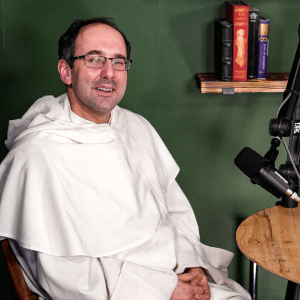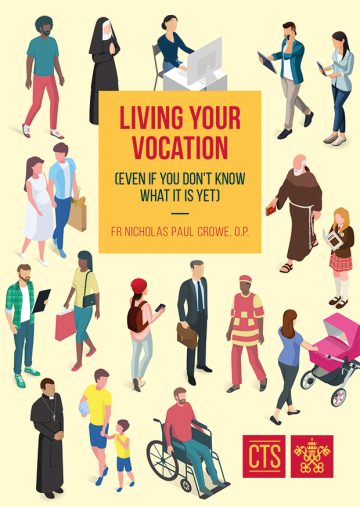3. Vocation: Misconceptions, Calling & Discernment
With Prior for the Dominicans in Blackfriars Fr Nicholas Crowe OP
Watch:
Listen:
What is a vocation? Is it something we all have? In this latest episode of Into the Truth, we’re delving into vocation with Dominican Friar Fr Nicholas Crowe, author of our new book ‘Living our Vocation (Even If You Don’t Know What It Is Yet)’. Fr Nick explores misconceptions about vocation, what we mean by calling, and how to discern.
Follow on your favourite podcast app:


Get the Book
Living Your Vocation: 5 Key Quotes
- Our life is a gift of love from our heavenly Father: our task is to offer him a gift of love in return as a sign of our gratitude. This is the frame through which to view our vocational choices: we are little children offering our heavenly Father a gift. Moreimportant, then, than what we choose is the love with which our gift is offered.
- Discipleship means learning from Jesus so that we might live the same kind of life that Jesus lived: a life of radical self-sacrificial love in communion with other believers. This life of ongoing conversion and discipleship should be the primary reference in our minds when we use the word ‘vocation’. To be called by God means that we are called to live in friendship with Jesus in this life by living as his disciples, walking in his footsteps in a deepening repentance and conversion that culminates in the perfect love of the vision of God in heaven.
- The only way to understand our calling and the meaning and purpose of our life is to turn our eyes away from ourselves and instead look to God: “It is he that made us, and we are his” (Ps 100:3). His love brought us into existence, and in him we will learn the unique way in which we have been called to manifest his glory.
- Which environment or context is most likely to help me become a saint? If holiness – a deep love of God – really is my priority, what form of life will best help me, with all my strengths and weaknesses, to attain that goal?
- It is easy to see how the work of a priest or a religious might be the work of God. Yet it is important to emphasise that our co-operation with the work of God extends far beyond ‘churchy’ roles. If our work is somehow providing for the needs of God’s children, if our work is somehow making another person’s life better, then we are, or can be, part of God’s providential care for that person. More than this, if we do our work with love, our work can become part of the way that we offer ourselves as a gift of love to God.
Order Now: Living Your Vocation (Even If You Don’t Know What It Is Yet)





